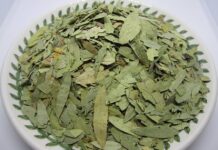Ashwagandha for Thyroid Benefits and Side Effects, Millions of people across the globe suffer from thyroid disorders. And many believe that one needs to take lifelong medication for thyroid. But one modest herb has emerged as a cure for thyroid dysfunction: Ashwagandha. Ashwagandha a medicinal herb, native to Asia and parts of Africa, has been used in Ayurvedic medicine since time immemorial to treat a wide range of health disorders. Its scientific name is Withania Somnifera Dunal, it is an adaptogenic herb that also goes by the name Winter Cherry or Indian Ginseng. Ashwagandha has proven to be an effective stress reliever, cure for vitamin C deficiency, stress related ulcers, strengthening immunity and stress endurance levels. However, this herb has been doing the rounds more as a treatment for thyroid rather than a stress reliever. It is valued for its thyroid-modulating, neuroprotective, anti-depressant and anti-inflammatory properties.
Here are some of the benefits of Ashwagandha:
1. Improves underactive thyroid function
Adaptogenic herbs like Ashwagandha are known to help people with thyroid disorders. This particular herb has been shown to support a sluggish thyroid for people diagnosed with underactive thyroid. Consumption of ashwagandha root extract in any form improves serum thyroid stimulating hormone (TSH) and thyroxine (T4) levels. Ashwagandha is beneficial in normalizing the thyroid levels of the patients.
2. Overcomes adrenal fatigue
Adrenal and endocrine glands in the human body are responsible for releasing hormones, specifically adrenaline and cortisol. Sometimes the adrenal glands are overburdened due to an overabundance of physical or mental stress, which can further lead to adrenal fatigue. Research proves that Ashwagandha is useful in supporting adrenal function, thereby helping the body to overcome adrenal fatigue.
3. Stimulates T4 hormones
Ashwagandha is known to stimulate the thyroid gland to produce T4 (thyroxine) hormone and effectively cure hypothyroidism (a condition where the thyroid gland does not produce enough thyroid hormone). However, elevated T4 levels may generate oxidative stress (an imbalance of free radicals and antioxidants in your body), and the free radicals so formed oxidize the lipid membranes of cells in a process called lipid peroxidation causing damage to the cells. Ashwagandha, as an effective antioxidant, manages to hunt the free radicals and reduce lipid peroxidation thus reducing oxidative stress.
4. Helps to cope with symptoms of hypothyroidism
Decreased memory, lower concentration, insomnia and decreased cognitive abilitis are some of the symptoms of hypothyroidism. Ashwagandha helps in increasing memory, concentration and cognitive abilities, thus promoting an uplifted mood and reducing stress and insomnia along with promoting restful sleep.
How to use Ashwagandha:
1. Ashwagandha tea
Add 1 tablespoon Ashwagandha powder to a cup hot water and mix well. Add 1 tablespoon honey for taste. Sip and enjoy.
2. Aswagandha Tonic
Boil 2 cups of milk on high heat. Then add 1-2 tablespoon of Ashwagandha powder to the milk and boil on low heat for 15 minutes. Add 1 tablespoon of sugar and half a teaspoon of cardamom powder. Turn off the heat and enjoy.
Ashwagandha churna balls
Mix 1 tablespoon of powdered jaggery with 1 tablespoon of ashwagandha churna (powder). Add salt and black pepper as per your taste. Shape it into a ball.
It is clear that Ashwagandha’s thyroid benefits are impressive. It is a wonderful herb which can benefit many people with hypothyroid and autoimmune thyroid disorders.
Expert tips
- Ashwagandha should be used cautiously or avoided if you have a thyroid condition as it might increase thyroid hormone levels.
- Ashwagandha has no major side effect on the body, but many studies state that Ashwagandha should not be consumed by pregnant and breastfeeding women as it might cause miscarriage.
- Said to irritate the gastrointestinal tract, the consumption of Ashwagandha can often cause stomach ulcers or cause it to aggravate.
It is always beneficial to consult Ashwagandha for Thyroid Benefits and Side Effects your doctor before adding Ashwagandha to your diet.






